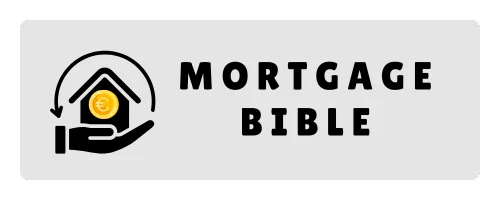Remortgaging refers to the process of switching your existing mortgage to a new lender or renegotiating the terms with your current lender. This can involve taking out a new mortgage to pay off the existing one, often with the aim of securing a better interest rate, reducing monthly payments, or accessing additional funds. Essentially, it’s a financial maneuver that allows you to reassess your mortgage terms and potentially improve your overall financial situation.
You might consider remortgaging if your current mortgage deal is coming to an end, or if you believe that better options are available in the market. In many cases, remortgaging can be a strategic move to take advantage of lower interest rates or to tap into the equity you have built up in your home. As property values fluctuate, you may find that your home is worth significantly more than when you first purchased it.
This increase in value can provide you with opportunities to access funds for renovations, debt consolidation, or other financial needs. By understanding what remortgaging entails, you can make informed decisions that align with your financial goals.
Key Takeaways
- Remortgaging is the process of switching your current mortgage to a new lender or renegotiating the terms with your existing lender.
- The benefits of remortgaging in Ireland include potentially lower interest rates, access to home equity, and the ability to consolidate debt.
- Home equity can be unlocked through remortgaging by borrowing against the value of your property, which can be used for home improvements, debt consolidation, or other expenses.
- Costs and fees involved in remortgaging may include valuation fees, legal fees, and early repayment charges, so it’s important to consider these before making a decision.
- Factors to consider before remortgaging include the current value of your property, your credit score, and the length of time you plan to stay in the property.
The Benefits of Remortgaging in Ireland
Improving Financial Stability
This can be particularly beneficial if you are looking to improve your financial stability or invest in other areas of your life. With lower monthly payments, you can allocate more funds towards debt repayment, savings, or investments, ultimately leading to a more secure financial future.
Unlocking Home Equity
Another significant benefit of remortgaging is the ability to access equity in your home. As property values rise, so does the equity you hold in your property. Remortgaging allows you to tap into this equity, providing you with funds that can be used for various purposes, such as home improvements, education expenses, or even starting a business.
Flexibility to Achieve Your Goals
This flexibility can be a game-changer, enabling you to leverage your home’s value to achieve your financial aspirations. Whether you’re looking to renovate your home, fund your children’s education, or start a new business venture, remortgaging can provide the necessary funds to turn your goals into reality.
How to Unlock Home Equity through Remortgaging

Unlocking home equity through remortgaging involves taking out a new mortgage that exceeds the amount owed on your current mortgage. This process allows you to access the difference as cash, which can be used for various purposes. To begin this process, you first need to determine how much equity you have in your home.
This is typically calculated by subtracting the remaining balance on your mortgage from the current market value of your property. Once you have a clear understanding of your equity position, you can approach lenders to explore remortgaging options. Many lenders offer products specifically designed for homeowners looking to access equity.
It’s essential to shop around and compare different offers to find the best deal that suits your needs. Keep in mind that while accessing equity can provide immediate financial relief or investment opportunities, it also means increasing your overall debt, so careful consideration is necessary.
Understanding the Costs and Fees Involved in Remortgaging
| Costs and Fees | Amount |
|---|---|
| Valuation Fee | £150-£1,500 |
| Legal Fees | £200-£500 |
| Arrangement Fee | £0-£2,000 |
| Early Repayment Charge | 1-5% of the outstanding balance |
| Exit Fee | £50-£300 |
While remortgaging can offer numerous benefits, it’s crucial to understand the costs and fees associated with the process. These can include arrangement fees charged by the new lender, valuation fees for assessing the property’s worth, and legal fees for handling the paperwork involved in transferring the mortgage. Additionally, there may be early repayment charges on your existing mortgage if you decide to switch before the end of its term.
It’s important to factor these costs into your decision-making process. While remortgaging may save you money in the long run through lower interest rates or better terms, the upfront costs can sometimes negate those savings. Therefore, conducting a thorough cost-benefit analysis will help you determine whether remortgaging is financially viable for you at this time.
Factors to Consider Before Remortgaging
Before deciding to remortgage, there are several factors you should consider carefully. First and foremost is your current financial situation. Assessing your income, expenses, and overall financial health will help you determine whether now is the right time for a remortgage.
If you are facing financial difficulties or uncertainty in your job, it may be wise to hold off on making any significant changes to your mortgage. Another critical factor is the length of time you plan to stay in your home. If you anticipate moving within a few years, remortgaging may not be worth the costs involved.
On the other hand, if you plan to stay long-term and can secure a better deal, remortgaging could lead to substantial savings over time. Additionally, consider market conditions; if interest rates are low and property values are stable or rising, it may be an opportune moment to explore remortgaging options.
The Process of Remortgaging in Ireland

The remortgaging process in Ireland typically begins with researching potential lenders and their offerings. You’ll want to gather information on interest rates, terms, and any associated fees. Once you’ve identified a suitable lender, the next step is to apply for a new mortgage.
This application will require documentation such as proof of income, details about your current mortgage, and information about your property. After submitting your application, the lender will conduct a valuation of your property and assess your financial situation before making a decision. If approved, you’ll receive a formal offer outlining the terms of the new mortgage.
Once you accept this offer, legal processes will commence to transfer the mortgage from your old lender to the new one. It’s advisable to work with a solicitor during this stage to ensure all legal requirements are met and that the transition goes smoothly.
Alternative Options to Remortgaging
If remortgaging doesn’t seem like the right fit for you at this time, there are alternative options worth considering. One such option is simply negotiating with your current lender for better terms or rates. Many lenders are willing to work with existing customers who express interest in adjusting their mortgage conditions, especially if they believe it will prevent them from losing a customer.
Another alternative is exploring personal loans or lines of credit if you need access to funds without changing your mortgage. These options may come with different terms and interest rates but can provide flexibility without the complexities involved in remortgaging. Additionally, government schemes aimed at assisting homeowners may also be available, offering support tailored to specific needs or circumstances.
Tips for Maximizing the Benefits of Remortgaging
To maximize the benefits of remortgaging, start by conducting thorough research on available options and lenders. Take advantage of online comparison tools that allow you to evaluate different products side by side. This will help ensure that you secure the best possible deal tailored to your financial situation.
Additionally, consider consulting with a financial advisor or mortgage broker who can provide personalized guidance based on your unique circumstances. They can help navigate the complexities of remortgaging and identify opportunities that may not be immediately apparent. Finally, always read the fine print before committing to any new mortgage agreement; understanding all terms and conditions will empower you to make informed decisions that align with your long-term financial goals.
In conclusion, remortgaging can be a powerful tool for homeowners looking to improve their financial situation or access additional funds. By understanding what remortgaging entails and considering all factors involved, you can make informed decisions that align with your goals and aspirations. Whether it’s securing a lower interest rate or unlocking home equity for future investments, taking the time to explore this option could lead to significant benefits in the long run.
If you are considering remortgaging in Ireland, you may also be interested in understanding tracker mortgages. This beginner’s guide provides valuable information on how tracker mortgages work and their benefits. Additionally, if you are looking to self-build on family land, it is important to understand site ownership and mortgage requirements. This article offers insights into the process. Lastly, if you are considering getting a mortgage with AIB, a comprehensive guide is available to help you navigate the process. Check out this article for more information.

